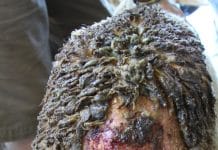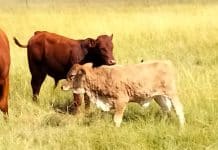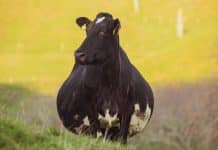Piet Mothepu and his wife, Maria, have been farming on Kirkdale in the Koppies area of the Free State for three years.
“I am renting the farm through the Department of Agriculture, Land Reform and Rural Development on a 30-year lease agreement with the option to buy. When I first started farming in 2010, I leased a farm in Steynsrus. After that we moved to two different farms, the first in Edenville, which I leased, and the second in the Sasolburg area, which consisted of 200ha of leased municipal land. This allowed me to gradually grow my farming activities to where I am today.”
Piet says he still considers himself an emerging farmer. He has 80 cows, but once he surpasses the 100-cow mark, he will consider himself a fully-fledged commercial farmer.
“Of the 80 cows on the farm, I received 35 through the Sernick/Jobs Fund scheme, with the understanding that I have to give back 40% of the offspring. This is a very good deal because there is no way that I would have been able to afford 35 top-quality cows on my own.”
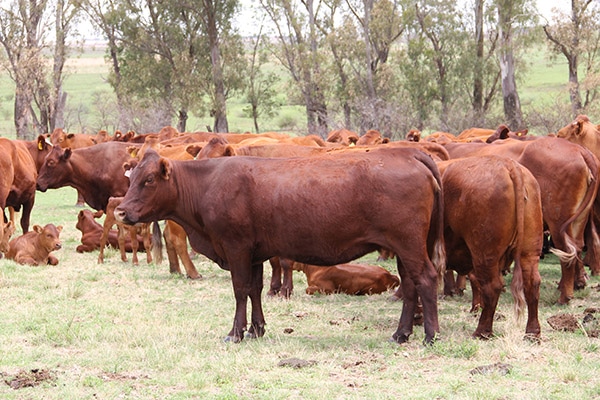
Previously, Piet was a full-time shopkeeper and owned three supermarkets in Sasolburg. These days he is involved in construction and has also opened two new supermarkets, both called Mothepu Superstores, in Parys. He plans to market most of the products produced on the farm through these supermarkets.
“Although we plan to produce a variety of products on the farm, I am a cattle farmer at heart. This year, however, I partnered with my neighbour and we have planted 70ha to maize as well as a variety of vegetables. In addition, my wife has a piggery with some 20 sows. Most of the maize is earmarked to go into the swine feed.”
Sernick plays a leading role
Piet had been farming cattle for quite a while when he attended his first course at Sernick. This, he says, changed his approach to business.
“Both Maria and I attended courses, and my son Tsepo is currently completing a learnership in the Sernick butchery in Kroonstad. Yet even before these courses became freely available, I used to visit Sernick regularly for advice and to buy bulls at very reasonable prices. They are always available to give technical and management advice.”
With the help of Nick Serfontein, Piet had plans approved to erect his own feedlot for 5 000 cattle on Kirkdale. “Ntate Nick really is a role model to me. I want to emulate him in adding as much value to my product along the full value chain – from breeding superior cattle and feeding them in my own feedlot, to selling the beef in my own butchery in my supermarkets. However, I do not want to limit myself to beef. I also want to produce my own vegetables, pork, chickens and mutton to market through my stores.”
Nick told him in no uncertain terms that it is critical to maintain control of his product for as long as possible. Sometimes, for example when the maize price is high, the feedlot will not make money but profits can be realised further along the value chain.
Incorporating grazing management
One of the principles that Sernick imparted focused on grazing management. “They told me to try and graze only half of the farm on a rotational basis during the growing season, while resting the other half for winter grazing. The following year the half that was grazed during winter is then utilised. This gives half of the grazing a chance to rest for a full growing season every year.
“Incorporating this management system was really beneficial. When half of the grazing was consumed by a veld fire during last year’s winter, I was able to keep the cattle in a reasonable condition thanks to the extra grass. Fortunately, we received early rains and the veld responded quickly.”
The support of others
Piet is quick to emphasise that he has received support from various individuals throughout his life. In his early years it was the late Piet Geyer, a church minister in Reitz and owner of the farm Doornkloof between Lindley and Edenville, where Piet was born.
“Moruti Piet made sure that I attended school. He had a great influence on me and many others. I am also thankful for Nick Serfontein as well as my neighbours for their support. They are often fifth-generation farmers, while I’m the first. But they accept me and support me by offering good advice and friendship.
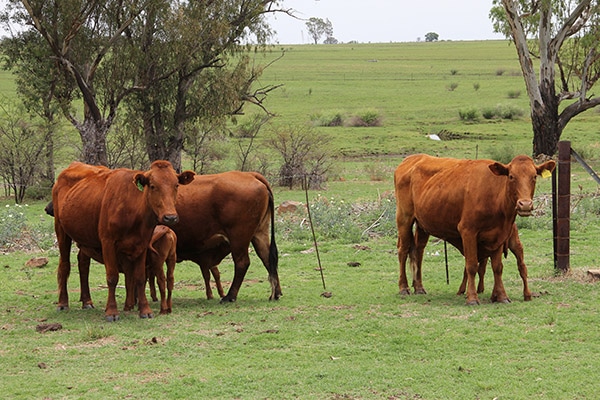
“When I need to make firebreaks, for example, they assist by providing equipment if my own is not adequate. They have also invited me to join their security structures, as our problems and needs are the same. When my farm was on fire more than 20 vehicles came to my assistance.”
The communities in which his shops are situated also deserve recognition. They supported him from the start, which enabled him to grow.
Stumbling blocks to success
What are the major stumbling blocks preventing more black emerging farmers from becoming viable commercial farmers?
“The first stumbling block is enough collateral to secure loans. As long as we do not have ownership of our farms, lending institutions will not be interested in loaning us money. In my case, I was lucky that I had other assets that I could put up as collateral, but not many black farmers are in that position. Farmers need title deeds.”
The second is that agriculture is not a priority in South Africa. This needs to change urgently. “More resources need to be put aside to empower farmers. The Jobs Fund and Sernick should not be the only entities that help emerging farmers through their projects.”
Leaving a legacy
If he could give advice to any new farmer trying to start a business, it is to have passion, to be prepared to work hard and to remember that this is a long-term commitment. Do not expect to make quick money.
“I think it is crucial to get advice from experienced farmers. Remember, there are a lot of things you do not know. Be prepared to learn from people who do know. And don’t be too proud to ask for help.”
Read about the legacy Robert Mphuti is building.
Farming, says Piet, offers the opportunity to create a legacy for his children. “I can leave behind something that will be of great value to them. There is no other industry that I know of that can do that. This is why succession planning is so important. I want to empower my children to be able to continue farming after I am gone, and I want to create sound structures that will make it easier for them.”
Looking to the future, Piet wants to grow his farming business until he is one of the top black farmers in the country. This is the legacy he wants to leave for his children. – Izak Hofmeyr, Stockfarm
For more information, phone Piet Mothepu on 078 875 3376.


